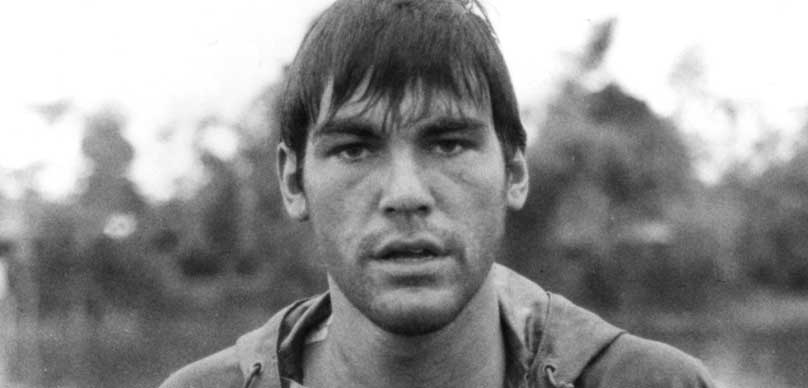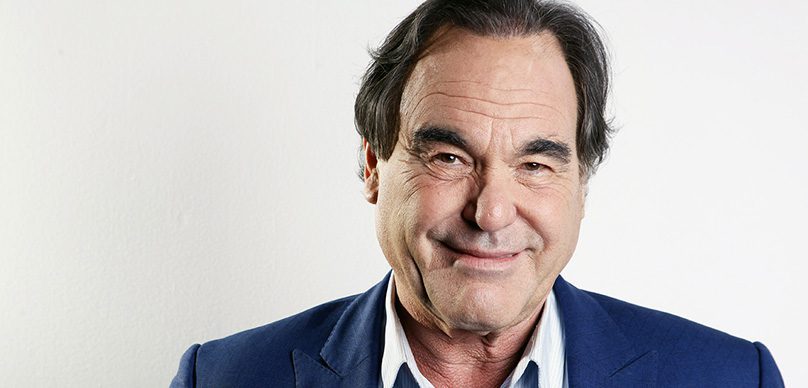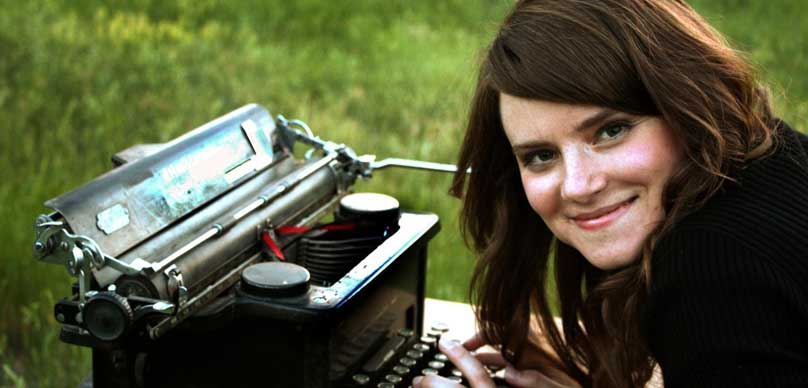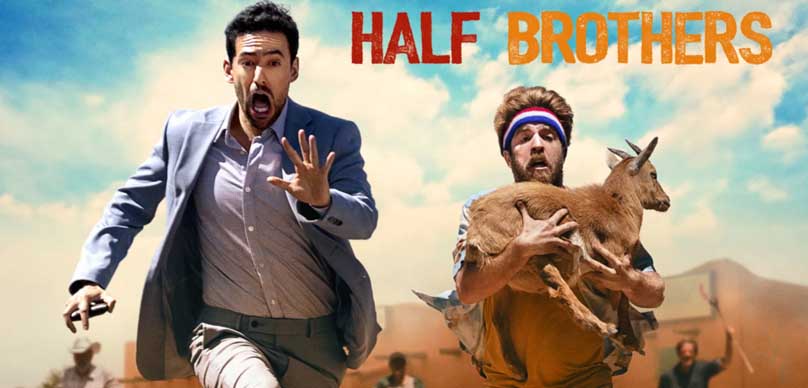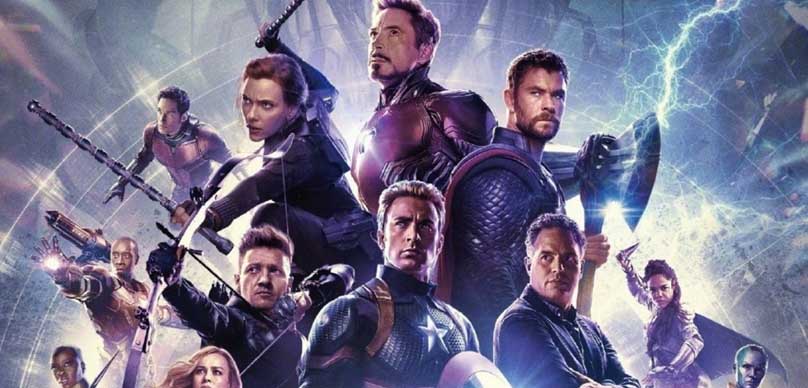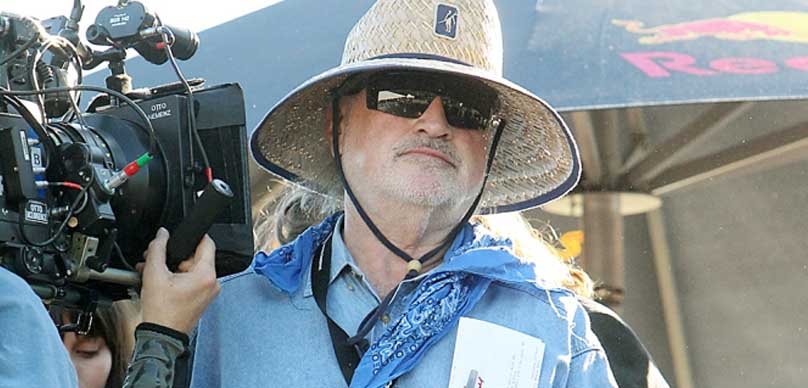Well, 2020 has been one hell of a year. Our industry has been turned upside down and inside out. The way business is done in Hollywood has been changed forever. There has been so much pain and suffering this year. People lost their jobs.
Legendary companies that were thought to be unbreakable filed for bankruptcy. The mear act of being on set became a highly dangerous occupation. So many beloved filmmakers and actors passed away. Film festivals closed their doors. Movie theaters giants shut their doors, some for good. COVID-19 devasted not only our business but the world.
2020 just f**king sucked!
With all that said I see a light of hope on the horizon. Like every New Years before Jan 1 brings with it a new hope, an opportunity to improve things, and for your life to be better than before. 2021 has a lot of pressure on it for sure. I know so many tribe members have had a rough go of it but the only thing we can do is to take charge of what you can control.
You might not be able to control the world, the virus, your employer, or the economy. But you can control what you do on a daily basis, how you act, how you think. You can think everything sucks and there’s no hope for you or your dreams or you can think that you have the power to change where you are in life right now.
Every dream, every success story started with one thought, I CAN DO THIS. As Henery Ford once said
“If you think you can do a thing or think you can’t do a thing, you’re right.”
The power of your own thoughts is so much more mighty than you think. Trust me I speak from experience. Looking back on my life I realized that in the roughest moments my thoughts were destructive and when I was experiencing great successes my thoughts were constructive. Whatever you focus on grows so if I were you I’d focus on the positive and not the negative.
This year I came to a profound truth that the key to success is to help others. The moment I launched Indie Film Hustle my life began to change. The more I helped others the better my life became. The opportunities I had been chasing for decades just started showing up at my door. Don’t get me wrong, as you know I hustled like crazy but not on getting things for myself as much as providing value to other people. As Les Brown said
“Help othersachieve their dreamsand you will achieve yours.”
In 2021 make it a goal to help others with their dreams and I promise you that things in your life will change, it did for me. In 2020 I released my second feature film On the Corner of Ego and Desire, created BulletproofScreenwriting.tv, my premium online education platform IFH Academy, launched the IFH Podcast Network and multiple podcasts including The Filmmaking Motivation Podcast, The Directors Series Podcast, Inside the Screenwriter’s Mind Podcast, and spoke to legendary filmmakers and screenwriters on my shows like Oliver Stone, Barry Sonnenfeld, Alex Proyas, James V. Hart, and John Badham just to name a few.
And most importantly I was inspired by you the Indie Film Hustle and Bulletproof Screenwriting Tribes. Your stories of overcoming obstacles, massive successes, and following your dreams moved me. Getting emails and messages from around the world gave me hope that yes we are in tough times but even with all that you, the tribe, continues to move forward like an unstoppable creative force.
In 2021 we will try, fail, and try again because remember…
“Failure is simply the opportunity to begin again, this time more intelligently.” – Henry Ford
The more you might fail the closer you are to succeeding. I’ll be trying a ton of new things in the new year and hope they will be a success but am ready if they don’t live up to my expectations.
In 2021 I’ll be launching a couple of new companies, partnering with amazing new instructors for IFH Academy, releasing my new book, adding amazing new content to Indie Film Hustle TV, publishing new audiobooks through IFH Books, producing a few new podcasts for the IFH Podcast Network, and developing new websites to further help filmmakers and screenwriters follow their dreams.
I want you to write down what you want to accomplish in 2021 and what steps you will be taking every day to get those goals. Do you want to set a goal of one or two screenplays a year as Oliver Stone does? Do you want to direct your first feature film? What needed tools do you want to put in your toolbox? What need skills do you want to learn to make you a more dangerous and knowledgeable filmmaker or screenwriter?
After speaking to hundreds of the industry’s most successful artists and business people I found they all had one thing in common, they never gave up! They all just kept going no matter what. Oliver Stone had the script for Platoon in his pocket for years before someone produced it. James V. Hart was in his forties when he had his breakout with Hook and Dracula. Barry Sonnenfeldwent from shooting adult films to having his movies gross almost $2.5 billion worldwide.
Every successful person you look up to failed and failed often on their way to success. They never gave up and you shouldn’t either. Every no is one step closer to a yes. I wish all of you an amazing 2021 and don’t forget to keep that hustle going and keep that dream alive!
Be well, stay safe, and Happy New Year.
Right-click here to download the MP3
LINKS
- On the Corner of Ego and Desire
- IFH Academy
- IFH Podcast Network
- The Filmmaking Motivation Podcast
- The Directors Series Podcast
- Inside the Screenwriter’s Mind Podcast
- IFH 021: Wakaliwood: Uganda’s Quentin Tarantino
- Oliver Stone
- Barry Sonnenfeld
- Alex Proyas
- James V. Hart
- John Badham
SPONSORS
- Bulletproof Script Coverage – Get Your Screenplay Read by Hollywood Professionals
- Audible – Get a Free Screenwriting Audiobook
Alex Ferrari 0:02
Well, guys, 2020 has been one hell of a year and emphasis on the word owl, our industry has been turned upside down and inside out the way business is done in Hollywood has changed forever. There has been just so much pain and suffering this year. So many people lost their jobs, legendary companies that we thought that would be there forever, and they were unbreakable, filed for bankruptcy, or closed completely. The mere act of being unset became a highly dangerous occupation. So many beloved filmmakers and actors and writers and technicians passed away this year. Film Festivals closed their doors, some for good movie theater giants, shut their doors, some never to return. COVID-19 has devastated not only our business, but the world. 2020 just fn sucked. With all that said, I do see a light of hope on the horizon. Like every new year before January 1, brings with it a new hope and opportunity to improve things. And for your life to be better than it was before. 2021 has a lot of pressure on it, to say the least. I know so many tribe members that have had a rough go of it in 2020. But the only thing we can do is take charge of what we can control. You might not be able to control the world, the virus, your employer, or the economy. You can control what you do on a daily basis, how you act and how you think. You can think everything sucks, and that there's no hope for you or your dreams. Or you can think that you have the power to change where you are in life right now. Every dream, every success story started with one single thought I can do this. As Henry Ford once said, If you think you can do a thing, or think you can't do a thing. You're right. The power of your own thoughts is so much more mighty than you think. Trust me because I speak from experience. Looking back on my life, I realize that in the roughest moments, my thoughts were destructive and negative. And when I was experienced great successes, my thoughts were constructive and positive. Whatever you focus on grows. So if I were you I focus on the positive and not the negative. This year, I came to the profound truth that the key to success is helping others.
The moment I launched indie film hustle, my life began to change after years of struggle, after years of hustling and trying to hack the system and trying to get to where I wanted to be no matter what. It was launching indie film hustle that made the biggest difference in my life. The more I helped others, the better my life became. The opportunities I had been chasing for decades, just started to show up at my door. But don't get me wrong. You know, I hustle like crazy. I'm kind of insane about it, to be honest with you. But my hustle is not about getting things for myself, as much as it is to provide value to other people. As Les Brown once famously said, help others achieve their dreams, and you will achieve yours. I want you in 2021 to make it a goal to help other filmmakers, other screenwriters, other people with their dreams. And I promise you that things in your life will change because it certainly did for me. In 2020, I released my second feature on the corner of ego and desire, created bulletproof screenwriting.tv my premium online educational platform ifH Academy launched the ifH Podcast Network, and multiple podcasts including the filmmaking motivation podcast, the director series podcast inside the screenwriters mind podcast, and spoke to legendary filmmakers and screenwriters on my shows, like Oliver Stone, Barry sonnenfeld, Alex prayas, James v. Hart, and john batum, just to name a few. But most importantly, I was inspired by you, the indie film, hustle and bulletproof screenwriting tribes, your stories of overcoming obstacles, massive successes, and following your dreams moved me moved my soul. getting emails and messages from around the world gave me hope. They Yes, we are in tough times. But even with all that, the tribe continues to move forward, like an unstoppable creative force. In 2021, I'll be launching a couple of new companies partnering with amazing new instructors for ifH Academy, releasing my new book, adding amazing new content to indie film, hustle TV, publishing new audio books through my publishing company, ifH books, producing a few new podcasts for the ifH Podcast Network, and developing new websites. To further help filmmakers and screenwriters follow their dreams. I want you to write down what you want to accomplish in 2021, and what steps you will be taking every day to get to your goals. Do you want to set a goal of one to two screenplays a year like Oliver Stone does? Do you want to direct your first feature film? What needed tools do you want to put in your toolbox? What new skills do you want to learn to make you a more dangerous and knowledgeable filmmaker? Or screenwriter? What side hustles Are you going to try to create the generate revenue for yourself while you're chasing your dream? After speaking to hundreds of the industry's most successful artists and business people, I found they all had one thing in common. They never gave up. Oliver Stone had the script for a platoon in his pocket for years. And everybody in town rejected it. Everybody in town said will never produce this. Nobody wants to see this movie, but he never gave up. And in 1986 he won the Oscar for Best Picture. And Best Director James v. Hart was in his 40s before he had his breakout hits with hook and Dracula. Barry sonnenfeld went from shooting adult films, to having his movies grossed almost $2.5 billion worldwide. Every big screenwriter, every big filmmaker, every big director, every big producer, they all have one thing in common. They failed and they failed often on their way to success. They never gave up and you shouldn't either.
Every no is one step closer to a yes. In 2021. Educate yourself as much as possible. learn something new every day. Take a course read a book, experience something, work on a set safely Of course, do whatever you can to put more tools in your toolbox. The reason I was able to Go to Sundance, and shoot an entire feature film in four days, running around completely guerilla style was not only because I had an amazing group of people working with me, but it was also because I had been working for two decades, putting tools in my toolbox, being able to not only direct, but also right, edit, color grade, do the graphics, produce, and so, so many other jobs, I can't even keep track of them all that I did on that film. But I was able to do that, again, because I educated myself and I and I worked on putting those tools in my toolbox. In 2021, I want you all to add a ton of new tools in your toolbox. If you're a writer, learn new techniques, learn new approaches to the process, or hell just write more, because by writing more, you're adding more tools in your toolbox. I'm going to go back to my conversation with Oliver Stone. And I asked him how many screenplays Did you write before you got to direct your real first film because he did a film right out of right out of college. But he doesn't even count that one as much as he does a second one. And he had written about 1012 screenplays, something along those lines before a producer finally financed one of his projects. The road to success is not easy, but it's doable. And it's doable for everyone listening to my voice right now, anywhere in the world. If you think you have a tough, you should listen to that podcast about what Hollywood and how that amazing filmmaker makes his films for two $300 us. And he makes it he built an entire industry in his in his town. He's world renowned now. But when he started, he was just trying to learn trying to put more tools in the toolbox. I don't care where you are in the world. If you want to make something happen for yourself, make it happen. The power to change your destiny is in your hands. It might not be easy, but it's something that you can do. I want to wish you all an amazing 2021. And please don't forget to keep that hustle going and to keep that dream alive. He will stay safe and have a great new year. And of course, keep on writing no matter what. I'll talk to you soon.
Sign up to receive email updates
Enter your name and email address below and I'll send you periodic updates about the podcast.
Please subscribe and leave a rating or review by going to BPS Podcast
Want to advertise on this show? Visit Bulletproofscreenwriting.tv/Sponsors


